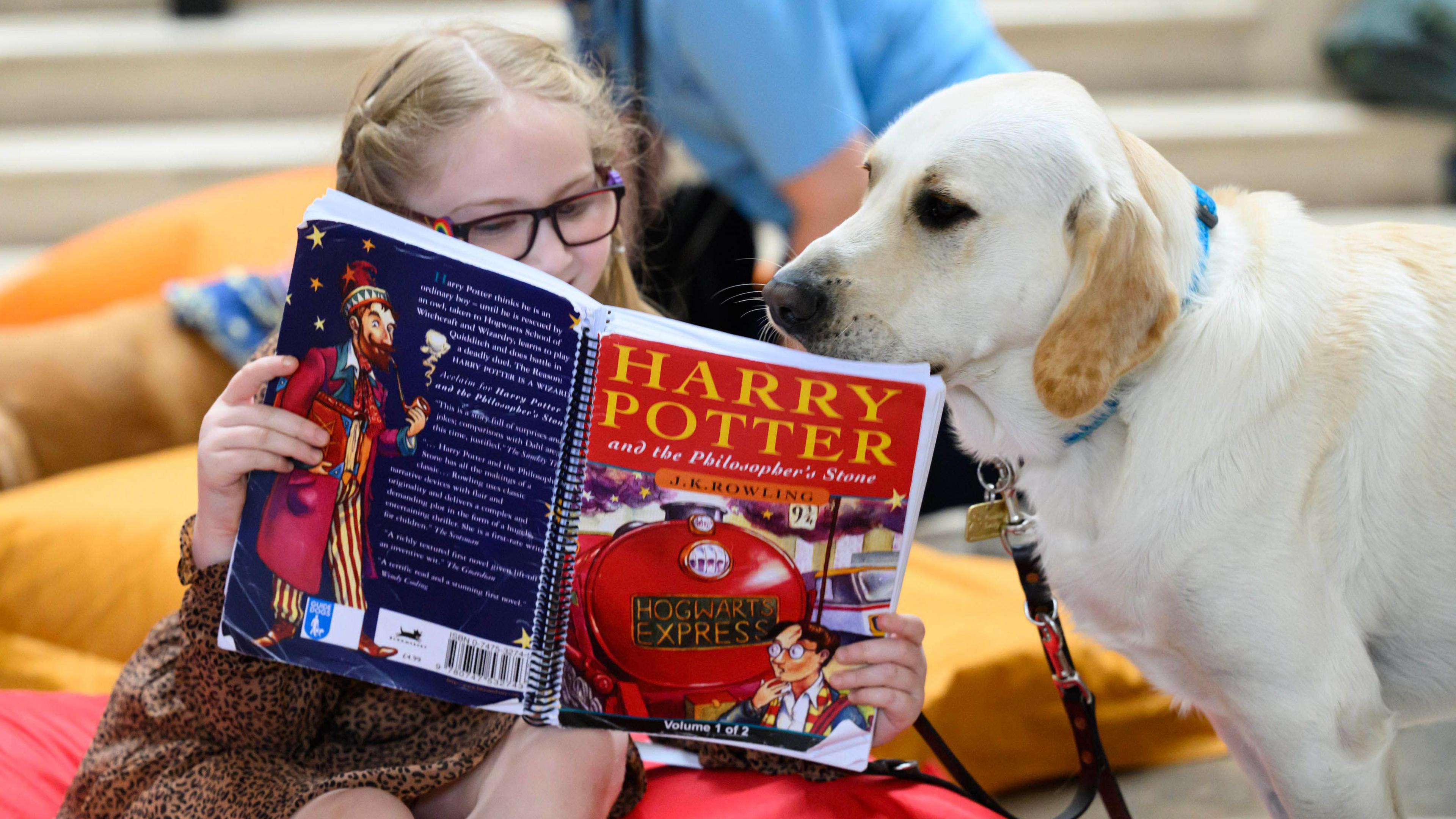Visually impaired children share story time with dogs

The event was aimed at giving children with visual impairments confidence to read
- Published
Children with visual impairments discovered the "magic of a great book" as they read to guide dogs at an event aimed at improving literacy and confidence.
The initiative, hosted by the Guide Dogs charity at the British Library in central London, was aimed at closing the reading gap between sighted children and their blind or visually impaired peers.
Research from the charity found 78% of sighted children reported to like reading, compared with 60% of children who are blind or visually impaired.
Kerry Kernan, from Guide Dogs, said she hoped the initiative would encourage all children to read aloud to their dogs to improve confidence.
The children at the British Library event, who had different sight loss conditions, met guide dogs in training.
Kate, whose six-year-old daughter Imogen was among those there, said the children and the dogs both had a "wonderful time settled on the beanbags for story time".
"Having a vision impairment shouldn’t be a barrier to being able to experience the magic of a great book," she said.
Canary Wharf becomes Canary Woof for Guide Dogs
- Published26 March 2024
Record numbers of guide dog volunteers after BBC story. Video, 00:01:18
- Published1 March 2023
The blind people who train their own guide dogs
- Published8 January 2023
The survey conducted by the charity found 91% of adults reported that they remembered reading aloud had helped improve their literacy skills but 65% of children reported they felt shy reading in front of their peers.
The research found that 72% of children agreed that reading to a dog would help their confidence.
'Reading transforms lives'
Ms Kernan, who is head of children, young people and families at Guide Dogs, said reading could "transform lives".
"A patient audience can work wonders when you’re getting to grips with tricky pronunciation and sounding out letters," she said.
"That’s why reading to dogs can be a lovely option – they don’t mind if the story gets a bit tangled up.”
Listen to the best of BBC Radio London on Sounds and follow BBC London on Facebook, external, X, external and Instagram, external. Send your story ideas to hello.bbclondon@bbc.co.uk, external